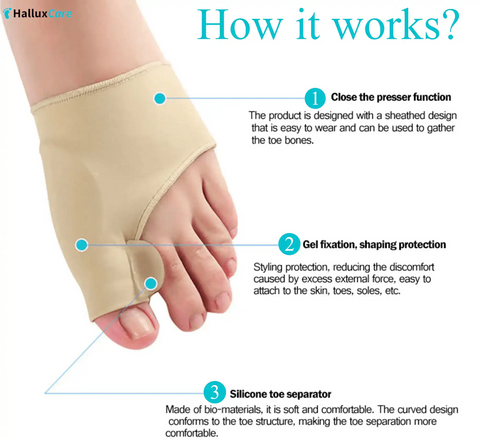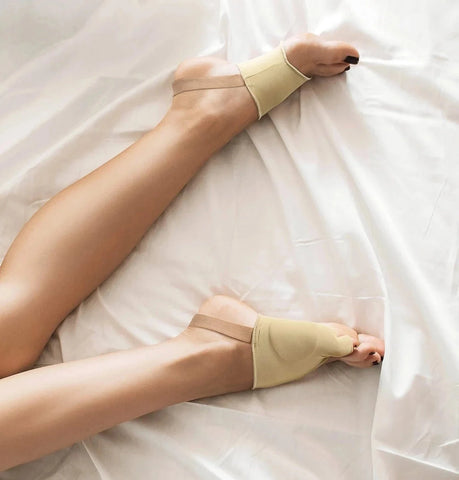Will Bunions Get Worse Without Surgery? Understanding Bunion Progression & Pain Relief Options
Last Updated: 2025-10-01
Author: Dr. Taylor Morgan, DPM – Board-Certified Podiatrist
Are you wondering if bunions will get worse without surgery? If you’re dealing with bunion pain or a visible bump on your foot, you’re not alone. Bunions are a common foot deformity, and many people ask if non-surgical treatments can prevent bunion progression. In this article, we’ll explore what happens to bunions over time, why pain develops, and what you can do to manage symptoms and maintain your active lifestyle.
Key Takeaways
- Bunions are progressive: Without intervention, bunions typically worsen over time.
- Non-surgical management can slow progression and relieve pain for many people.
- Surgery is only recommended when conservative measures no longer control pain or function.
- Early intervention with footwear, orthotics, and bunion sleeves can make a significant difference.
- Consult a podiatrist for personalized advice, especially if symptoms worsen or interfere with daily activities.
What Are Bunions and Why Do They Happen?
Bunions (hallux valgus) are bony bumps that form at the base of your big toe. They occur when the big toe pushes against the next toe, forcing the joint to stick out. Common causes include genetics, improper footwear, flat feet, and arthritis.
What the Experts Say
According to the American Orthopaedic Foot & Ankle Society (AOFAS), bunions are most often caused by inherited foot structure, but poorly fitting shoes and certain forms of arthritis can accelerate their development.¹ The American Academy of Orthopaedic Surgeons (AAOS) also notes that bunions rarely improve without intervention and may continue to progress.²
Will My Bunion Get Worse Without Surgery?
The short answer: Yes, bunions tend to worsen over time without intervention.
Why Bunions Progress
- Progressive nature: Bunions are a structural deformity of the foot. Without addressing the underlying biomechanical causes (like flat feet or tight shoes), the misalignment and joint enlargement typically increase.³
- Pain and inflammation: As the bunion enlarges, it can cause swelling, redness, and pain, particularly when wearing shoes.
- Activity and footwear: High-impact activities or wearing tight, narrow, or high-heeled shoes can accelerate bunion progression.
Medical Evidence
A longitudinal study published in Foot & Ankle International found that bunion severity and associated symptoms tend to increase with age, especially in individuals who do not use conservative management.⁴
Key Points to Remember
- Activity Level Matters: Staying active is great, but high-impact activities or tight shoes can accelerate bunion progression.
- Pain Is Not Immediate for Everyone: Some people have mild bunions for years with little to no pain. However, discomfort often develops as the bunion enlarges.
- Non-Surgical Management Can Help: Early intervention with bunion correctors, orthotics, and shoe modifications can slow progression and reduce pain.
4.9 ⭐⭐⭐⭐⭐ ( 1843 reviews)
Non-Surgical Bunion Relief: What Works?
Surgery is not the only option for bunion pain relief or correction. Consider these effective alternatives:
1. Orthopedic Bunion Sleeves
- Provide gentle realignment and cushioning.
- Reduce pressure and friction on the bunion.
- Can be worn daily, even during activity.
2. Proper Footwear
- Choose shoes with a wide toe box and good arch support.
- Avoid high heels and pointed-toe shoes.
3. Padding & Supports
- Gel pads or sleeves protect the bunion from irritation.
- Custom orthotics can help correct biomechanical issues.
4. Lifestyle Adjustments
- Maintain a healthy weight to reduce foot stress.
- Incorporate foot exercises to strengthen supporting muscles.
Real-World Tip
Try wearing bunion sleeves or toe spacers at home to get used to the feeling before using them all day. Many patients find most relief when combining sleeves and supportive footwear.
When Should You Consider Surgery?
- Persistent pain that limits daily activities.
- Severe deformity or rapid progression.
- Non-surgical methods are no longer effective.
Medical Guidance
The American College of Foot and Ankle Surgeons (ACFAS) recommends surgery only for bunions causing significant pain that does not respond to conservative treatment.⁵ Surgery aims to realign the toe and relieve pain, not simply to "remove the bump."
Important: Surgery is not always necessary. Many people manage well with conservative treatments, but it’s wise to monitor your bunion and consult a podiatrist if symptoms worsen.
Real-Life Insight: What Reddit Users Are Saying
A user recently commented, “You don’t need to get surgery BUT know it’s going to get worse not better and pain will eventually come as its not a ‘normal/healthy’ foot because of the bunions.” This reflects the reality that while pain may not be constant now, bunions rarely improve on their own. Early intervention and ongoing care are key.
Take Control of Your Bunion Health
Don’t ignore your bunion—be proactive! Here’s what you can do today:
- Monitor the size and symptoms of your bunion.
- Invest in high-quality bunion sleeves and supportive footwear.
- Seek advice from a foot care professional if pain increases.
What’s your experience with bunion pain or progression? Do you have tips for managing symptoms without surgery? Share your story or questions in the comments below!
Popular Bunion Relief Products from HalluxCare.com
If you're looking for relief from bunion pain, consider using the Orthopedic Bunion Pain Relief & Correction Sleeve, which provides support and helps to alleviate discomfort.
For additional protection, the Tailor's Bunion Bunionette Pain Relief Protection Sleeves are designed to offer comfort and protection for bunionette pain.
To nourish and soothe the skin around bunions, as well as to promote healthy hair, consider the Jamaica Black Castor Oil Soothing Oil. Known for its moisturizing and anti-inflammatory properties, it helps alleviate discomfort around bunions and supports hair growth and scalp health.
Frequently Asked Questions (FAQs)
Q: Can a bunion go away on its own?
A: No, bunions are structural deformities and will not resolve without intervention. Conservative treatments can help manage symptoms and slow progression.¹
Q: Are bunion correctors effective?
A: Bunion correctors and sleeves can provide pain relief and may slow the worsening of the deformity, but they do not permanently reverse bunions.³
Q: When should I see a doctor about my bunion?
A: If you experience persistent pain, difficulty walking, or rapid changes in the bunion’s size or shape, consult a podiatrist.
Q: Will I need surgery in the future if I don’t have it now?
A: Not everyone with a bunion will require surgery. Many people manage well with conservative methods for years, but surgery may be needed if pain or deformity becomes severe.⁵
References
- American Orthopaedic Foot & Ankle Society: Bunions (Hallux Valgus)
- AAOS OrthoInfo: Bunions
- Mayo Clinic: Bunions
- Nix S, Smith M, Vicenzino B. "Prevalence of hallux valgus in the general population: a systematic review and meta-analysis." Foot & Ankle International. 2010.
- American College of Foot and Ankle Surgeons: Bunions
Article reviewed by Dr. Taylor Morgan, DPM – Board-Certified Podiatrist




